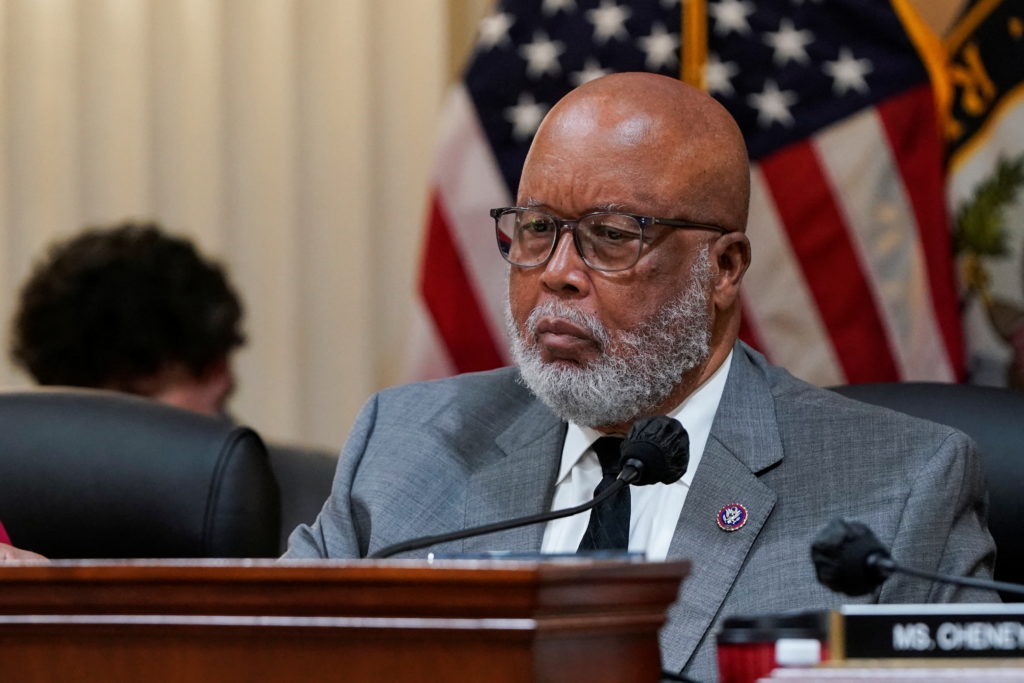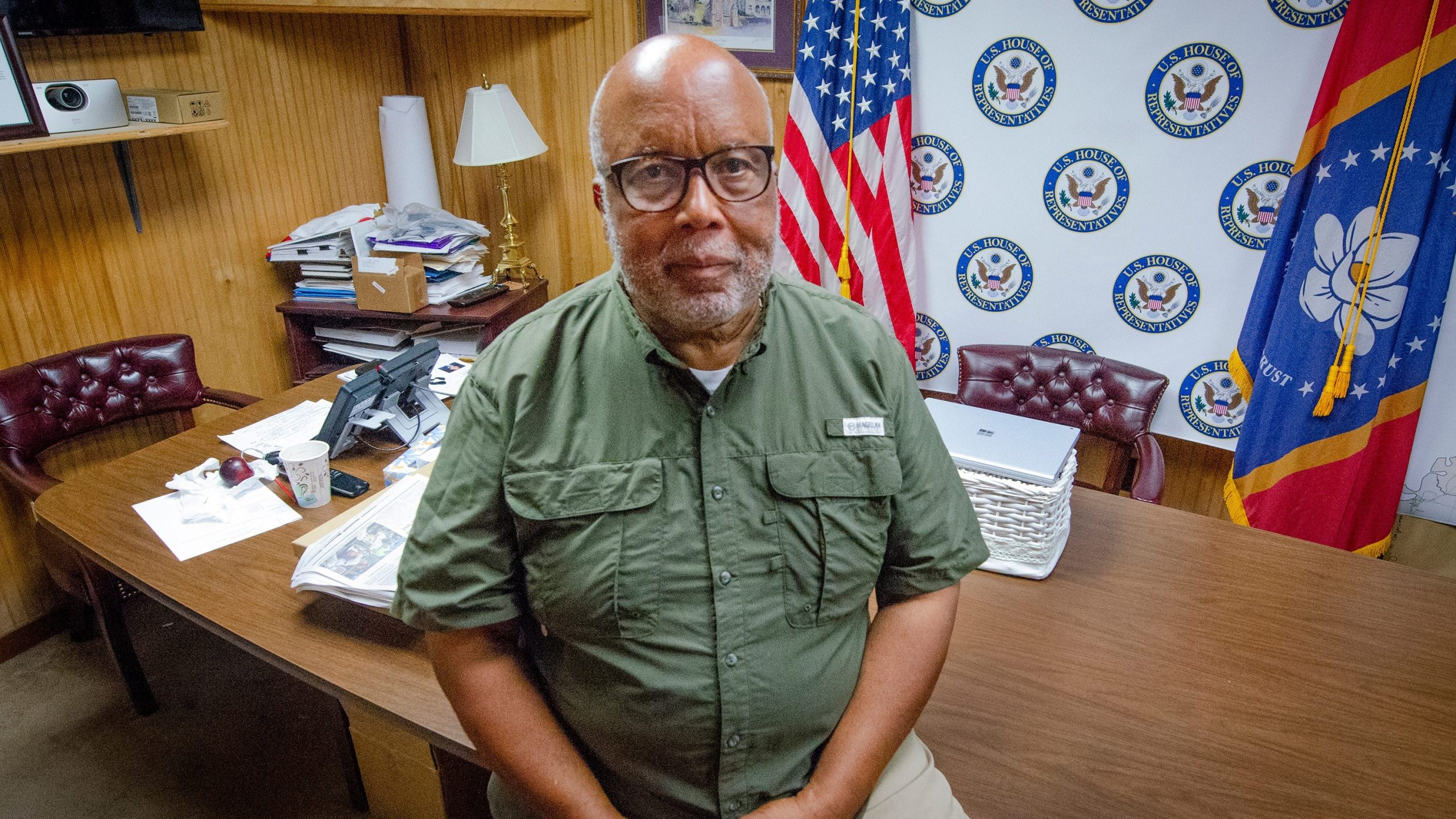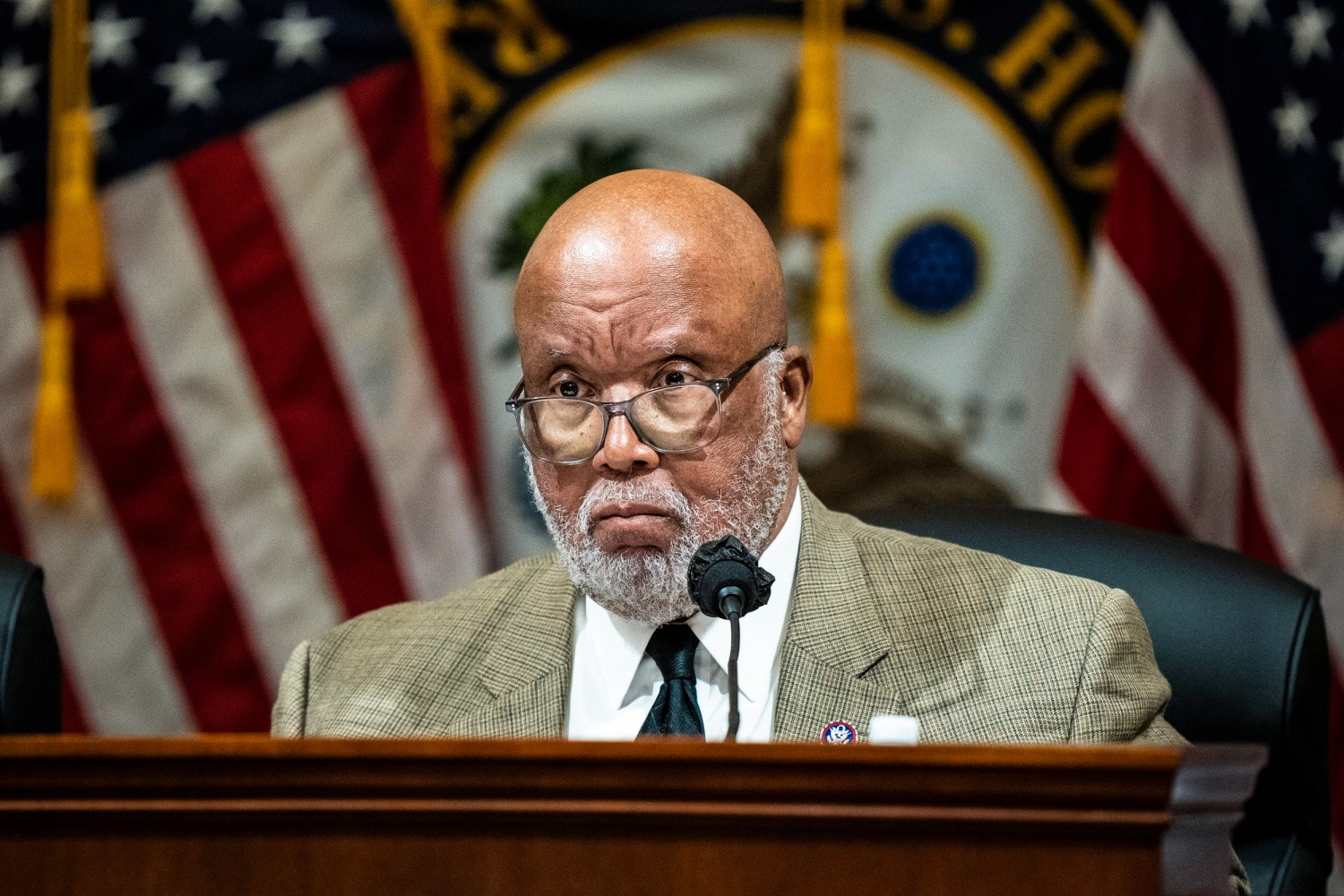Rep. Bennie Thompson (D-Miss.) has a deeply personal connection to the legacy of civil rights leader Medgar Evers, who was assassinated in front of his Mississippi home in 1963. Thompson was just a boy at the time, but the impact of Evers’ death and his contributions to the Civil Rights Movement have stayed with him throughout his life and career.
Thompson, who has served in Congress for 13 terms, has worked tirelessly to keep Evers’ legacy alive. He has advocated for various honors and recognitions, including the transfer and reburial of Evers’ remains to Arlington National Cemetery with full honors in 2003. Thompson also played a key role in the creation of a postage stamp in Evers’ honor, which was released in 2009 as part of the Civil Rights Pioneers issue.

Bennie Thompson (Credits: PBS)
In 2015, Thompson introduced a bill to award Evers the Congressional Gold Medal, which was awarded in recognition of his work on racial equality and his role in the passage and enactment of the Civil Rights Act of 1964.
Two years later, the home of Medgar and Myrlie Evers was designated as a national historic landmark, and in 2018, Thompson introduced the Medgar and Myrlie Evers Home National Monument Act to establish their home as a national monument and allow the National Park Service to conduct home improvements as needed.
Most recently, Thompson and the entire Mississippi congressional delegation urged President Biden to posthumously honor Evers with the Presidential Medal of Freedom, the nation’s highest civilian honor. This recognition is a culmination of Thompson’s decades-long efforts to ensure that Evers’ legacy is remembered and celebrated.

Rep. Bennie Thompson (Credits: PBS)
Thompson reflected on the importance of Evers’ legacy, saying, “We always talk about Malcolm and Martin and Fannie Lou, what they all meant to the Civil Rights Movement in the South, but somehow some of the heroes don’t quite get their just dues.”
He added, “Medgar had to go to a segregated public school, he had to go to a segregated college. He basically did everything based on the fact that he was an African American, not just an American, and he was treated as a second-class citizen.
And he resisted that, even until the night that he was shot and killed in the driveway of his home.” Thompson’s commitment to preserving Evers’ legacy is a testament to the enduring impact of his work on the Civil Rights Movement.
Evers’ activism, which included leading boycotts, demonstrations, and voter registration drives, helped to bring attention to the injustices faced by African Americans in the South. His assassination in 1963 was a pivotal moment in the Civil Rights Movement, and his legacy continues to inspire and motivate people today.

Congressman Bennie Thompson (Credits: CNN)
The Presidential Medal of Freedom, which will be awarded to Evers posthumously, is a fitting recognition of his contributions to the Civil Rights Movement. Thompson said, “For that legacy and work to be recognized by the president of the United States – you can’t get any stronger than that for validation purposes.”
The medal is a symbol of the country’s highest esteem and respect, and it serves as a reminder of the progress that has been made towards achieving racial equality and justice.























